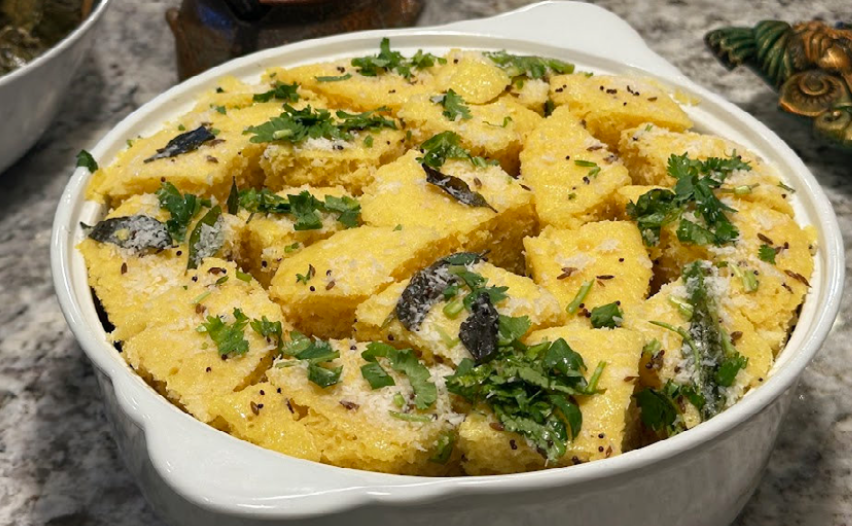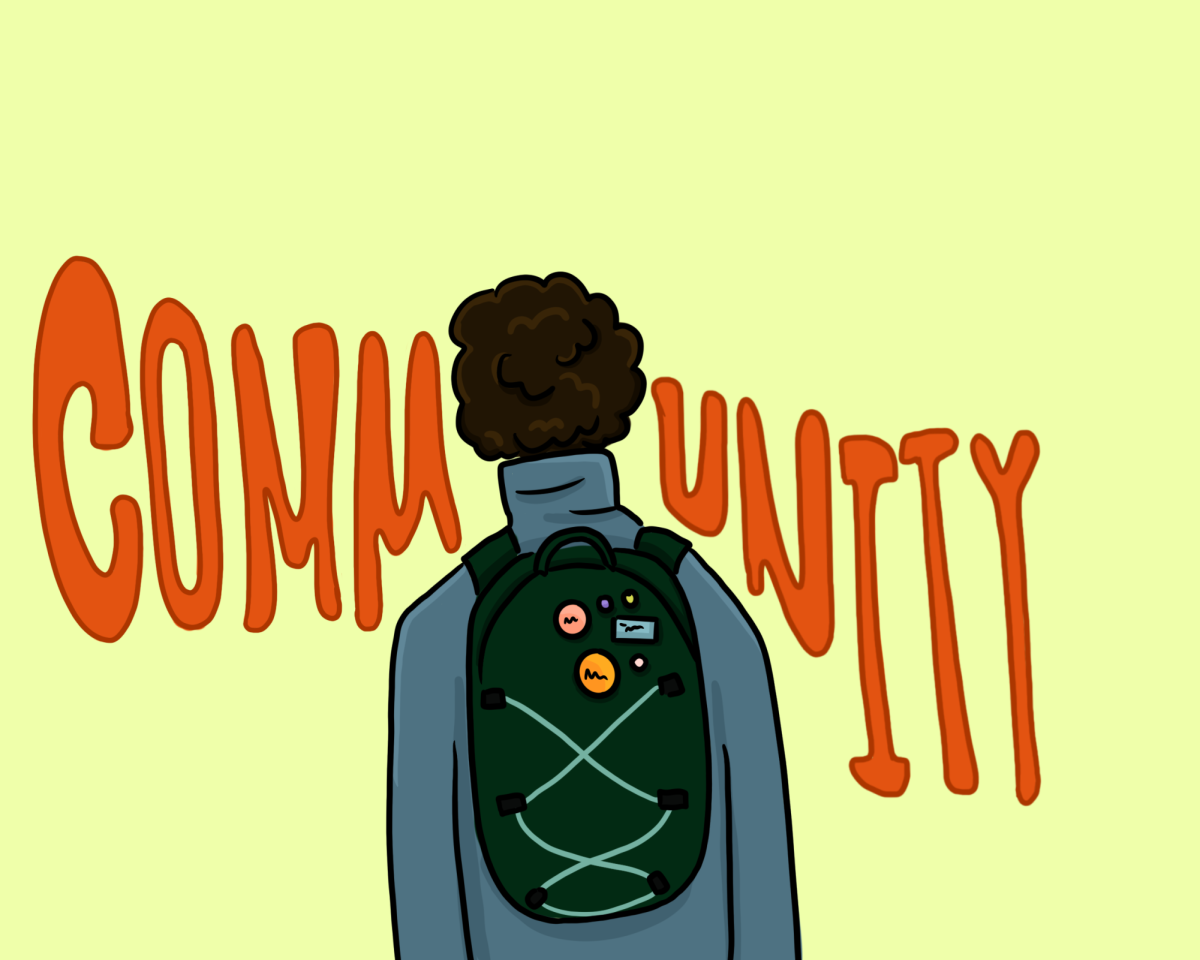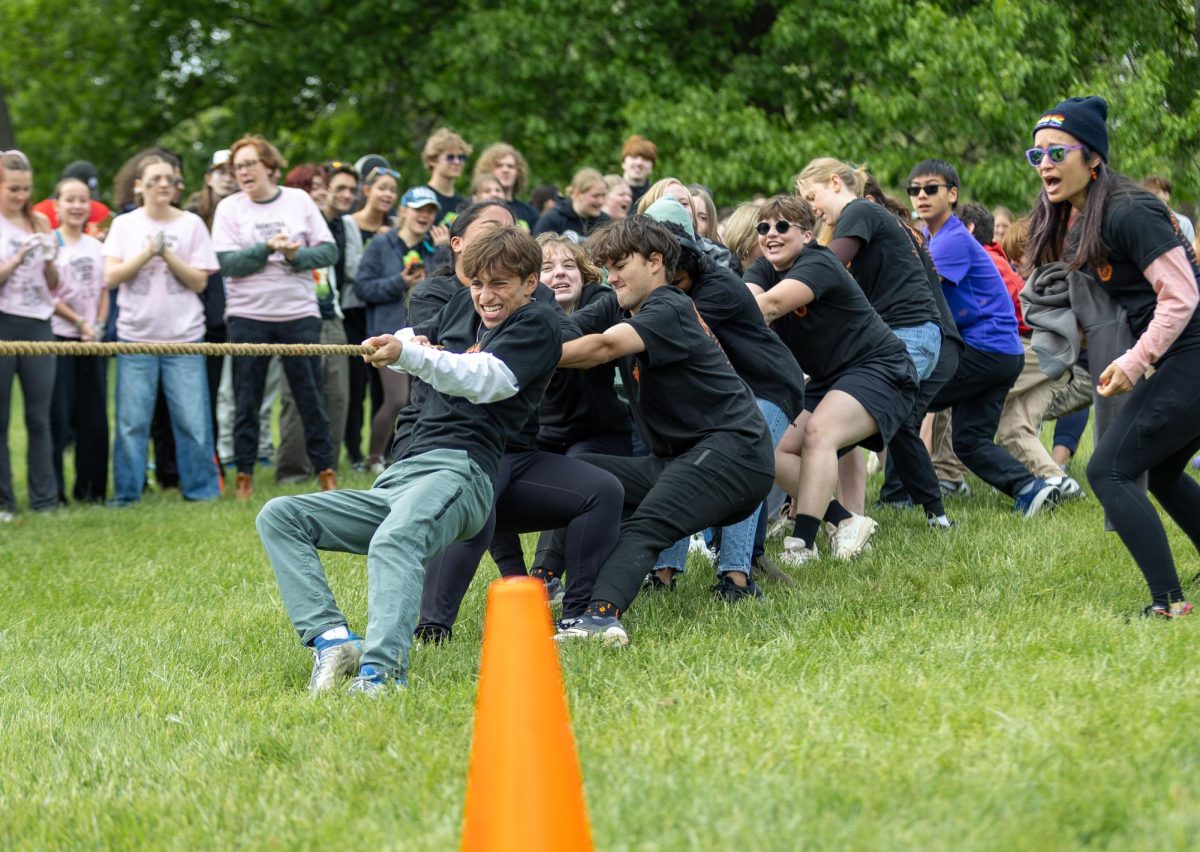After her mom passed away, Maneesha Mankad struggled to eat, let alone bring herself to cook any of her mom’s recipes.
“It took me a while to be able to do it,” Mankad said. “I couldn’t make the things that were most special to her. But now, I make them for my children. And I’m able to do it. But it’s that special relationship. Cooking was so dear to her. It was like an art form. It was her stress relief. It was a way to express her creativity.”
Mankad’s love of cooking was largely cultivated through her relationship with her mom. However, growing up in India, she was reluctant to learn due to traditional expectations of women in the kitchen.
“I saw it from a very patriarchal society,” Mankad said. “Women were expected to cook. My mom was at home, and she was expected to do the cooking. But my dad had studied in the U.S. and worked in the United States. So he always was very appreciative and wanted to help out. So at least I saw that aspect, but I wanted to stay away because I didn’t want to get sucked into that whole idea that because I have to cook. I didn’t want to show love for it. I was very interested in a career and I wanted to do all these things.”
Mankad did become responsible for a portion of the cooking when her mom began to work part time. It was not until she came to the U.S. that Mankad began seeking out traditional dishes to try and asking her mom to make a list of recipes. Most American style cooking had cookbooks or recipes off of the internet, but Mankad’s mom’s traditional Indian recipes would likely have been forgotten had Mankad not preserved them.
“I wrote down everything in this diary, so it’s a precious thing now for me,” Mankad said. “It has smears of grease. It has all these things that make it so precious. And I had all the dishes she wrote down. Then I wrote down all the ingredients and recipes, which I use to this day.”
Years later, Mankad’s mom needed medical treatment for cancer in the U.S. so she came to stay with her daughter. It was at this time that Mankad began asking for details in recipes and filling her cookbook diary. She also gathered recipes from other family members including her mother and sister-in-law. Mankad’s mom also shared her love of cooking with Mankad’s friends when they asked for Gujarati (a state in India) recipes.
“She had cancer, and she only prayed, ‘keep me well enough so that I can be cooking for my family,’,” Mankad said. “Even if there was a lot of stuff that she couldn’t do, she would sit in a chair and she would stir things. When she couldn’t sit in a chair for very long, she would give me instructions while laying down somewhere. She’d give me instructions about what could be done, so she was involved until she couldn’t do much any more.”
Cooking became a sacred part of Mankad and her mom’s relationship. Towards the end, Mankad felt herself pull away from cooking traditional recipes all together.
“It was a very strange thing when she was really sick,” Mankad said. “I didn’t want to learn anything anymore. It’s almost like if I learned everything she knew, she would be gone. And I didn’t want that. I would only make things that she wouldn’t make because I didn’t want her to feel strange.”
Mankad has since begun cooking from her diary of recipes again, and often shares recipes with her husband, children and friends. Amidst the chaos of cooking for Diwali this year, an Indian holiday often referred to as “the festival of lights,” Mankad realized she had forgotten to ask about a small detail in one of her mom’s recipes.
“I pulled up my mom’s recipe and then she had all these specific things but there was like one little thing, I never asked her—whether I’m supposed to cover the container when I’m cooking this,” Mankad said. “And I don’t have her to ask [now], so I called my aunt and asked her. ‘Do you remember mom making this? And was it something that she covered?’”
Mankad scribbled down her aunt’s notes into the diary in which she has documented all of her mom’s recipes. Now, the diary remains a precious keepsake for Mankad.
While Mankad has never wavered from her feminist position on gender roles associated with cooking, she values the bond she shared with her mom through cooking together.
Janaki Nallamothu
Janaki Nallamothu is learning to cook, not only as a means of connection, but because it’s an essential part of preserving a piece of her Indian heritage and culture.
Nallamothu has spent the past two years living with her grandmother, while her family’s home is being remodeled. She’s learning from her the art of Indian cooking as well as the stories and values that come with these family recipes.
“It’s fun to see her in that environment,” Nallamothu said. “Her way of showing love for everyone is cooking. I always like helping in the kitchen, especially because she’s getting older, so it is hard for her to do some things.”
In her grandmother’s house, the upstairs kitchen is mainly reserved for American food, while the smaller basement kitchen is perfect for containing the strong aromas of Indian spices.
“It hides the smell, so she always cooks down there,” Nallamothu said. “Whenever she came to our house before, she never cooked because there was nowhere [ideal] for her to cook. So, in the past two years I’ve been trying to learn some dishes.”
Before moving in with her grandmother, Nallamothu spent some time learning from her mom. But due to her busy work schedule, it was often difficult to find time to teach more in depth recipes. Because her grandmother does not work and has plenty of spare time, Nallamothu jumped at the opportunity to engage with more traditional Indian cooking and learn from an older generation. She feels she would lose out on a significant piece of Indian culture, had she not spent this time with her grandmother.
“I’d be missing a lot of her stories and values as well,” Nallamothu said. “She loves to talk, which is amazing. She grew up in India, so she always tells me stories about her and her sisters learning to make these dishes. It’s just being able to connect that way.”
Nallamothu also values the authenticity of recipes from her grand- mother’s generation, and hopes to continue passing down this part of her culture.
“My mom would use prepackaged spice packets, with all the spices you need for one dish, just because she wouldn’t have time otherwise,” Nallamothu said. “Whereas my grandma has all the separate spices, and she combines them in her own ways to make whatever she wants. She has different tips that are so different from what my mom would have told me.”
Once the renovations are complete, Nallamothu will move into a new home. She plans to continue trying new recipes there, and hopes to incorporate both her mom and grandmother’s styles.










